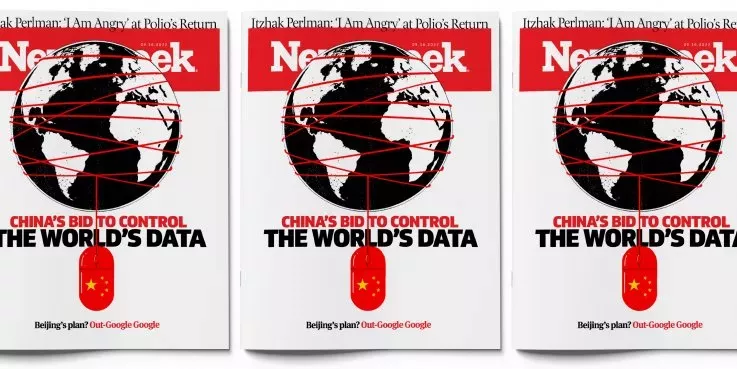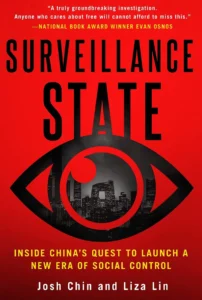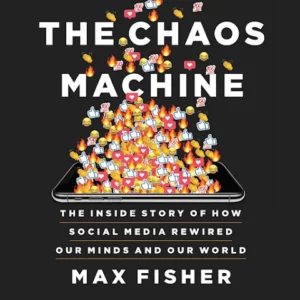 The rise of Big Data—the vast digital output of daily life, including data Google and Facebook collect from their users and convert into advertising dollars—is now a matter of national security, according to some policymakers. The fear is that China is vacuuming up data about the U.S. and its citizens not just to steal secrets from U.S. companies or to influence citizens but also to build the foundation of technological hegemony in the not-too-distant future, NEWSWEEK’s Adam Piore reports.
The rise of Big Data—the vast digital output of daily life, including data Google and Facebook collect from their users and convert into advertising dollars—is now a matter of national security, according to some policymakers. The fear is that China is vacuuming up data about the U.S. and its citizens not just to steal secrets from U.S. companies or to influence citizens but also to build the foundation of technological hegemony in the not-too-distant future, NEWSWEEK’s Adam Piore reports.
 Josh Chin’s and Liza Lin’s new book, Surveillance State: Inside China’s Quest to Launch a New Era of Social Control, untangle show China built its formidable digital surveillance apparatus and the often-erroneous assumptions that underpin its application, with disastrous consequences, NPR’s Emily Feng writes.
Josh Chin’s and Liza Lin’s new book, Surveillance State: Inside China’s Quest to Launch a New Era of Social Control, untangle show China built its formidable digital surveillance apparatus and the often-erroneous assumptions that underpin its application, with disastrous consequences, NPR’s Emily Feng writes.
On September 12 – 14, over 60 legislators representing a wide range of political parties from more than 25 countries will convene during the Inter-Parliamentary Alliance on China (IPAC) summit in Washington, D.C. The legislators will discuss coordinated responses among democratic states to address challenges posed by the Chinese Communist Party (CCP) to the international rules-based order and democratic principles.
“China’s sharp power denies freedom and fuels democratic backsliding, disinformation, and political polarization throughout the Asia region, from Taiwan to Burma and to Afghanistan,” says National Endowment for Democracy (NED) President and CEO Damon Wilson. “The CCP’s authoritarian tactics of the Chinese Communist Party are on full display as it commits genocide against the Uyghurs and undermines the rights and freedoms of the people of Hong Kong.”
“IPAC’s global network of policymakers is committed to united democratic action and building resilience in the face of China’s authoritarian influence,” he adds. “This work is critical to shape a future that respects human rights and democracy around the world.”
The IPAC conference is organized in partnership by two of NED’s core institutes, the International Republican Institute and the National Democratic Institute.
 Remember that the number of seconds in your day never changes. The amount of social media content competing for those seconds, however, doubles every year or so, depending on how you measure it, notes Max Fisher, the author of “The Chaos Machine: The Inside Story Of How Social Media Rewired Our Minds And Our World.”
Remember that the number of seconds in your day never changes. The amount of social media content competing for those seconds, however, doubles every year or so, depending on how you measure it, notes Max Fisher, the author of “The Chaos Machine: The Inside Story Of How Social Media Rewired Our Minds And Our World.”
Imagine, for instance, that your network produces 200 posts a day, of which you have time to read about a hundred. Because of the platform’s tilt, you will see the most outraged half of your feed, he tells NPR’s Ari Shapiro. Next year, when 200 doubles to 400, you will see the most outraged quarter, the year after that the most outraged eighth. Over time, your impression of your own community becomes radically more moralizing, aggrandizing and outraged. And so do you. At the same time, less innately engaging forms of content – truth, appeals to the greater good, appeals to tolerance – become more and more outmatched like stars over Times Square.
Peter Thiel, a founder of the companies PayPal and Palantir, expressed unambiguously antidemocratic leanings as early as 2009, saying that society couldn’t be entrusted to “the unthinking demos,” Fisher observes. He and his Silicon Valley peers, Fisher writes, saw society as “a set of engineering problems waiting to be solved.”
China is campaigning for influence across Central and Eastern Europe. To combat this malign influence, we must understand CCP tactics and strategies and how to counter them. We take a closer look at CCP influence efforts in
Bosnia and Herzegovina.
— CEPA (@cepa) September 7, 2022
After the Umbrella Movement in 2014, Beijing’s controversial extradition law in 2019 and its equally controversial national security law a year later, there’s little space left for civil liberties in Hong Kong, France24 reports (below). Nathan Law, who became its youngest legislator in 2016, is now an exiled #activist whose recently published book gives an account of China’s growing authoritarianism and what activists can do to confront it.







